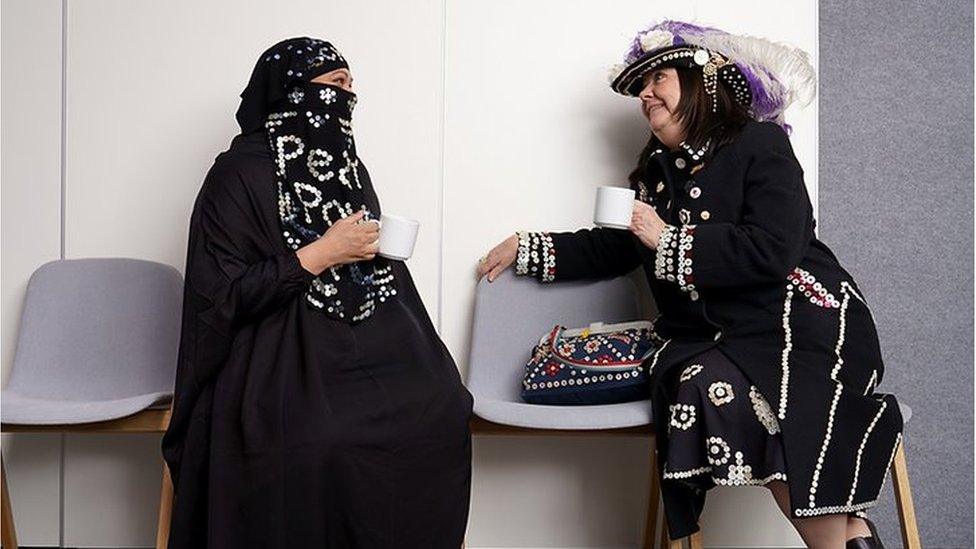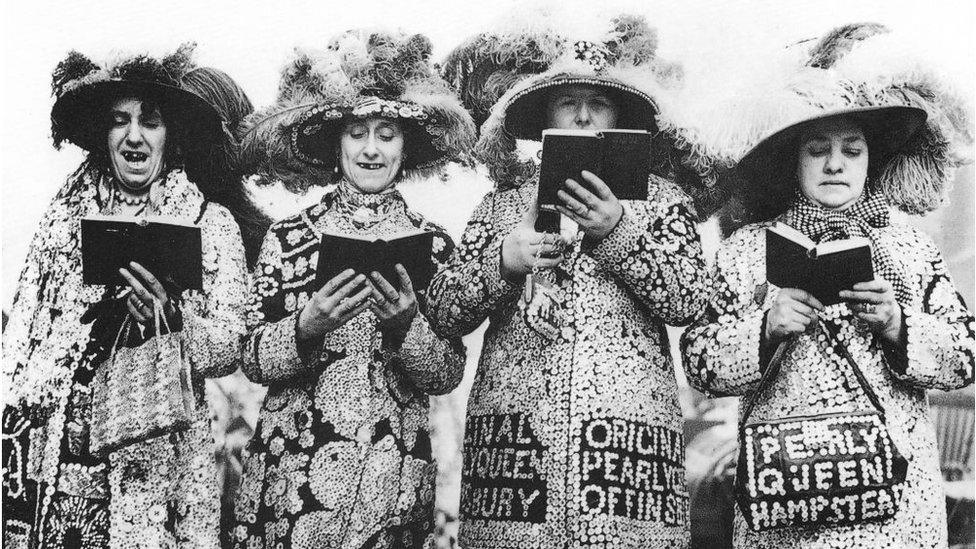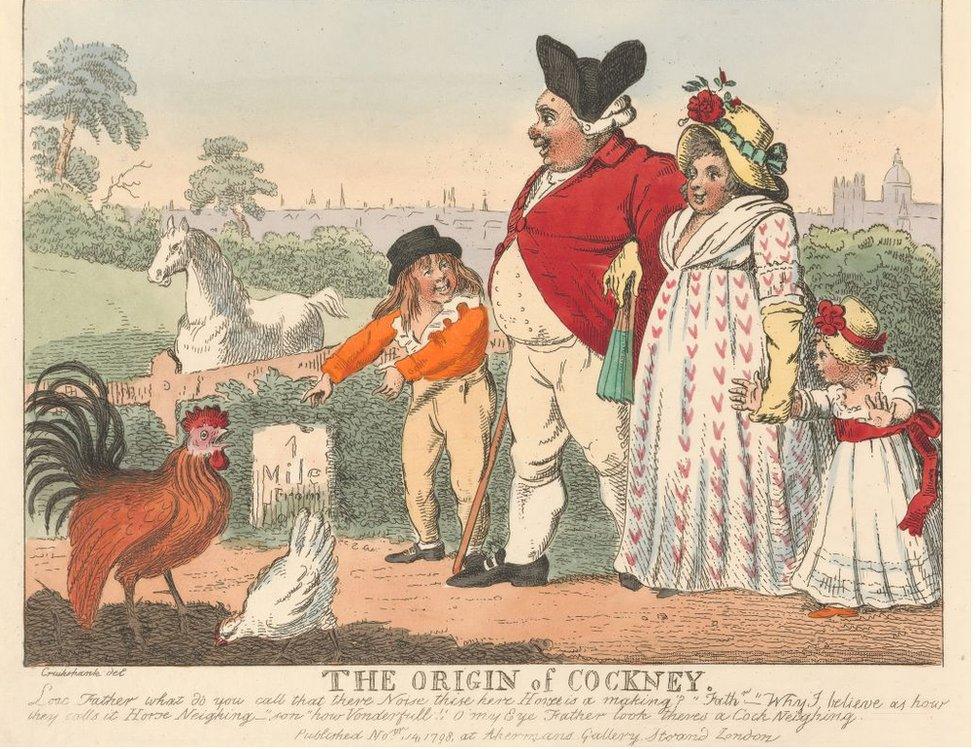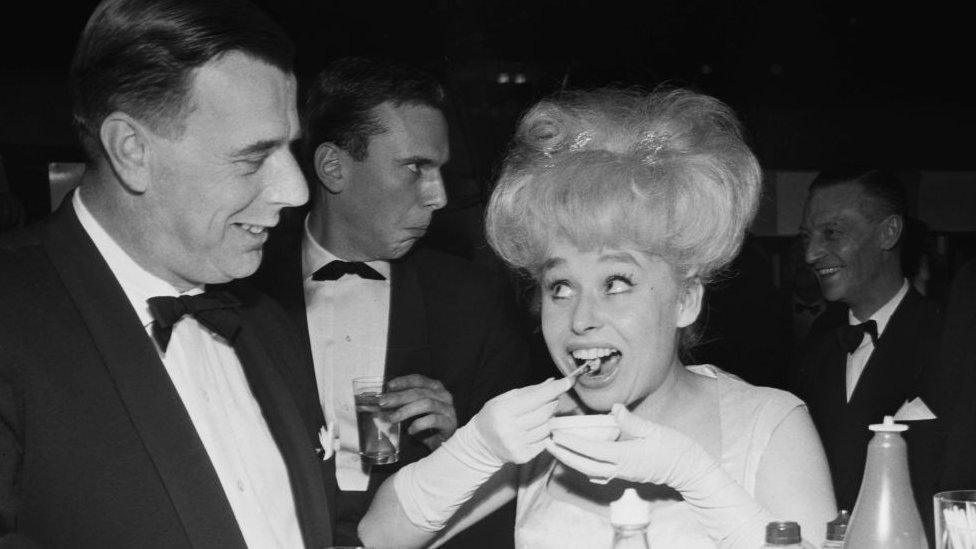Celebrating Cockney culture could 'help fight prejudice'
- Published

Two modern-day Pearly Queens who continue the Cockney tradition of leading fundraising activities across London
An academic report has suggested the idea of "Cockney culture" could be used as a tool to fight prejudice.
Sociolinguist Dr Chris Strelluf from the University of Warwick said people who speak non-standard English were subject to unjust stereotypes.
He said: "Evaluating a language as good or bad, correct or incorrect, smart or stupid is a social judgement, not grounded in linguistic science."
An upcoming month-long event will celebrate all "non-posh Londoners".
The Pearly King and Queen of Woolwich, Clive Bennett and his wife Kim, explained the cockney tradition
The Modern Cockney Festival, organised by community group Cockney Cultures, is described as "a call to action, urging society to protect and nurture linguistic diversity".
Dr Strelluf, author of Villains and Tea Leaves: Redefining Cockney and Defying Stereotypes, said: "Although the focus of the report is Cockney, it is relevant to all Englishes that invoke social prejudice and discrimination."
The study debunks myths about Cockney rhyming slang being born out of criminal activity, and highlights how it has historically thrived on multicultural influences, adapting with each wave of newcomers.

A Pearly quartet resplendent in traditional dress

What is a Cockney?

The Origin of Cockney, by Isaac Cruikshank, shows a provincial family noticing a "cock neighing"
Defining an identity by an imprecise audio boundary automatically creates ambiguity.
The famous Bow-bell-birth definition of a Cockney is attributed to a 1571 sermon: "We are thorough out all the Realme called cockneys that are borne in London, or in the sounde of Bow bell."
At the time, St Mary-le-Bow church would have been a common reference point at the centre of London (and not used to distinguish Cockneys from other Londoners).
Cockney Cultures said social identities in modern-day Britain were nowadays "more complex and multi-layered where people are more likely to define themselves by a fusion of labels, such as Cockney Bengali, Cockney Black, Essex or Kent Cockney".
To keep things simple, Cockney Cultures adopts the definition coined by comedian Arthur Smith of being "non-posh Londoners".

Clive Bennett, Pearly King of Woolwich, said: "Heritage is close to my heart, but it's also important for future generations to both know and grow our shared culture for their children's children.
"Respecting your Cockney heritage sets you up for life to be more resilient, resourceful, and to look on the bright side when the going gets tough."

Can't get much more Cockney than the late Barbara Windsor eating whelks
The Modern Cockney Festival, which runs throughout March, includes a pie and mash week, the launch of a virtual museum and talks with Cockney-related themes.
On 3 March, the festival will celebrate Speak Cockney Day - the date chosen because it is the "'fird of the 'fird".

Listen to the best of BBC Radio London on Sounds and follow BBC London on Facebook, external, X, external and Instagram, external. Send your story ideas to hello.bbclondon@bbc.co.uk